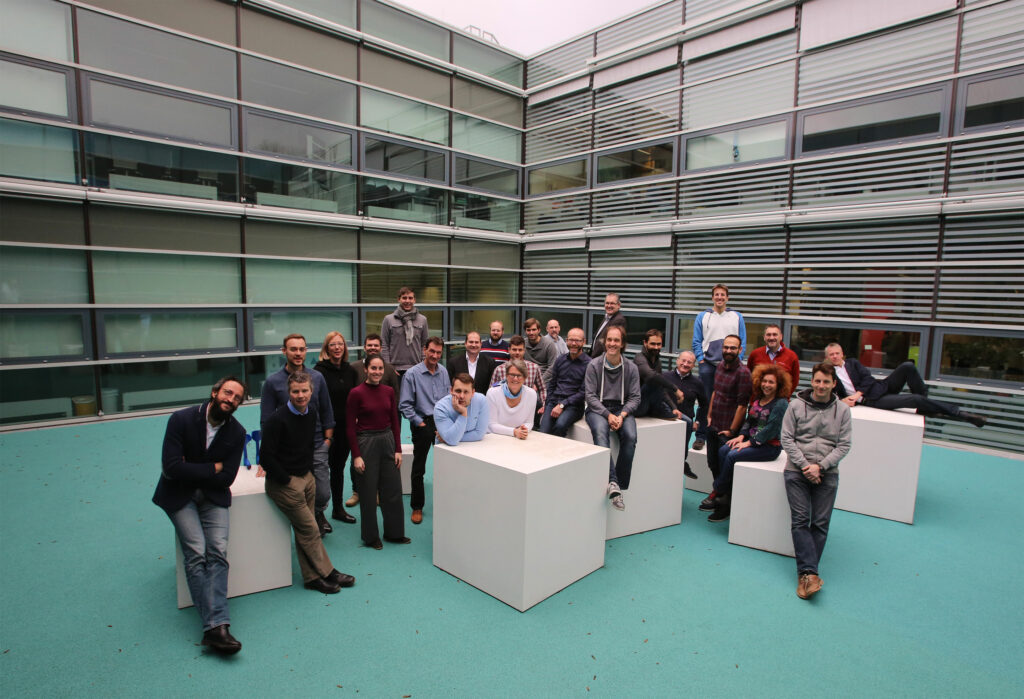EXCELLERAT to Bring HPC Applications to Engineering Industry
High-performance computing (HPC) specialists are looking forward to the technological improvements that should arrive in the coming years as supercomputers approach the exascale. New approaches in hardware design (including new processors and high-bandwidth memory) and in application development (for example, code parallelization and data processing) will expand the power of supercomputing and therefore make it possible to solve new kinds of complex problems.

Industrial research and development in engineering is one application area of high-performance computing that is likely to benefit from these advances. In an effort to expand the transfer of HPC expertise to engineering industry and research, the European Union Centre of Excellence (CoE) for engineering applications EXCELLERAT kicked off on December 11 and 12 in Stuttgart, the location of its coordinating organization High-Performance Computing Center Stuttgart (HLRS). Within the first six months of the project, much effort will be put into bringing the EXCELLERAT interest groups to life.
The interest groups consist of application developers, end users, scientific experts and technology providers outside of the consortium. The goal is to encourage participation and knowledge exchange in EXCELLERAT by allowing those interest groups members early access to the centre’s results.
The kick-off event concluded with a panel discussion moderated by Andreas Wierse (SICOS GmbH) with Bastian Koller (HLRS), Erwin Laure (KTH), Matthias Meinke (RWTH), Thomas Gerhold (DLR), and Gerd Büttner (Airbus). The expert panel of scientists, application owners, and application users discussed how EXCELLERAT will benefit the use of HPC in different research areas, such as aerospace and automotive.
EXCELLERAT’s goal is to facilitate the development of important codes for high-tech engineering, including maximizing their scalability to ever larger computing architectures and supporting the technology transfer that will broaden their use within the industrial environment. “These activities”, says project coordinator and HLRS managing director Bastian Koller, “will support engineers through the entire HPC engineering application lifecycle, including data pre-processing, code optimization, application execution, and post-processing. In addition, EXCELLERAT will provide training that prepares engineers in industry to take advantage of the opportunities that the latest HPC technologies offer.”
Six codes to define success of EXCELLERAT
Keys to the future success of EXCELLERAT are six codes ”“ namely Nek5000, Alya, AVBP, Fluidity, FEniCS, and FLUCS ”“ that are being brought into the project by consortium partners. The codes have been developed for academic applications in engineering fields such as aerospace, automotive, combustion, and fluid dynamics. To support their integration into real-life industrial applications, all consortium partners will work closely with end users outside the consortium. This will ultimately lead to fast feedback-cycles in all areas of the HPC engineering application lifecycle, from consultation on methodology and code implementation to data transfer and code optimization. End users will benefit from their commitment by gaining first-hand access to the project results.
Consortium partners cover expertise along the HPC engineering application lifecycle
The consortium of 13 partners in 7 European countries cover various areas of expertise. Project coordinator HLRS will provide consulting services for industrial HPC users on how to ensure their supercomputers are used most effectively. To support post-processing, HLRS will offer its extensive expertise in the implementation and application of parallel visualization tools for analyzing the large datasets produced by simulations.
Teratec and SICOS-BW are HPC advisors for industry and active at the intersection between computer science and the private sector. They will identify potential industrial users of EXCELLERAT services in their networks.
For machine learning-applications, the Fraunhofer Institute for Algorithms and Scientific Computing SCAI will provide expertise on computational algorithms and data analytics.
The Barcelona Supercomputing Center (BSC), Royal Institute of Technology (KTH), German Aerospace Center (DLR), RWTH Aachen, and French research centre CERFACS, will supply the codes.
The participating HPC centres HLRS, ARCTUR, CINECA, EPCC, BSC, and KTH will provide access to their respective supercomputing systems in Germany, Italy, Slovenia, Scotland, Spain and Sweden, and will establish links to other systems, such as the forthcoming European pre-exascale machines.
IT service provider SSC will ensure secure data transfer using their SWAN platform for proprietary use cases.
